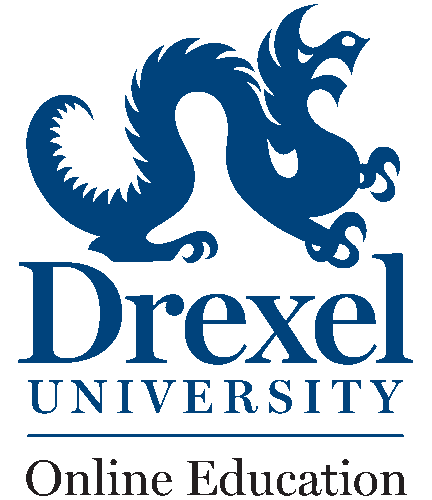


Requirements
and Restrictions
Learning Work?
or Live Event

MS in Organizational Learning, Leadership, and Policy
Classes Begin: March 30, 20262 years
Fully Online
45
CAEP accredited provider
The Master of Science in Organizational Learning, Leadership, and Policy (OLLP) program emphasizes learning, leadership, and policy across various contexts and settings including colleges and universities, schools, NGOs, nonprofits, governmental agencies, military, and corporations.
The MS in OLLP program prepares students to become thoughtful, adaptive leaders across educational systems and organizations. Reflecting Drexel’s culture of access, collaboration, and real-world impact, the curriculum emphasizes organizational learning, systems thinking, and data-informed decision-making. Students build practical skills to support leadership that works across communities and contexts—ensuring they’re equipped to foster growth, solve complex challenges, and create opportunities that benefit everyone.
MS in OLLP Online Program Features & Benefits
- Globally Aligned Leadership Principles
The program reflects the values and mission of the International Leadership Association, preparing students to lead ethically and effectively in diverse organizational contexts. - Expert Faculty with Real-World Impact
Learn from distinguished researchers and practitioners who bring interdisciplinary expertise in organizational learning, leadership, and policy — plus opportunities to build lasting professional connections. - Cutting-Edge Curriculum for Modern Leaders
Stay ahead of the curve with coursework that integrates the latest technologies, tools, and evidence-based practices shaping today’s leadership and policy environments. - Flexible Specialization Options
Tailor your degree with multiple concentrations and earn Post-Baccalaureate Certificates (PBCs) alongside your MS in OLLP to deepen your expertise in a specific field of practice. - Flexible Delivery
Designed for working professionals, this program offers a fully online format. This flexible structure allows students to stay grounded in their local settings while connecting with peers and faculty in a dynamic graduate learning experience. - Significant Tuition Savings for Partner Members
Students affiliated with select professional associations and partner organizations receive a 30% tuition discount — making advanced education more accessible.
What Will Students Learn in the Online MS in OLLP?
The Master of Science in Organizational Learning, Leadership, and Policy (OLLP) program offers a comprehensive foundation in leadership theory, strategy, and evidence-based practices across educational and organizational settings. Throughout the program students will hone their knowledge in organizational learning, systems thinking, data literacy, and decision-making—skills essential for navigating today’s complex environments. This program emphasizes innovative theory and practical application to help students lead with purpose, drive sustainable change, and shape policies that support growth and success across communities and institutions.
Program Learning Outcomes
- Lead teams and organizations across a range of settings by applying human-centered and learning-focused leadership principles, with a commitment to creating environments that support growth, collaboration, and opportunity for all.
- Critically analyze and interpret the multi-paradigmatic nature, behavior, structure, and dynamics of organizations and institutions, understanding their interrelationships with learning, leadership, policy, and other important outcomes.
- Apply evidence-based practices and engage in critical reflection to enhance decision-making and problem-solving in complex organizational environments.
- Analyze, visualize, apply, and interpret data and information in support of organizational learning, leadership, and policy making and implementation.
- Design and conduct applied research or projects in organizational settings, utilizing interdisciplinary knowledge from learning, leadership, and policy to address real-world challenges and promote positive change.
The MS in OLLP is a flexible and adaptable program that allows students to choose a primary concentration from the following:
- Education Policy
- Higher Education Leadership
- Human Resource Development
- Sport Coaching Leadership
Students also have the opportunity to earn Post-Baccalaureate Certificates (PBCs) in specialized fields. Additionally, the program provides a strong foundation and pathway for those who aspire to continue their education in the future in hopes of pursuing an EdD or PhD in the School of Education.
- Number of credits required to complete the program: 45
- Number of transfer credits accepted into the program: Maximum 15 (with Program Director approval)
Career Outlook for Organizational Learning, Leadership, and Policy
- Education Policy
Education policy analysts, education policy advocates - Higher Education Leadership
College and university administrators - Human Resource Development
HR business partners, learning and development leaders, organizational development directors, talent development directors, talent management leaders, HR strategists - Sport Coaching Leadership
College and university sport coaches, professional sport coaches, athletic administrators
Learn More about Drexel University’s Online MS in Organizational Learning, Leadership, and Policy
Pursuing an MS in Organizational Learning, Leadership, and Policy at Drexel University means joining a collaborative community of professionals committed to improving organizations through thoughtful leadership and informed policy. This fully online program equips students with practical tools in systems thinking, organizational learning, and data-driven decision-making to address challenges across subjects — from education and nonprofits to government and corporate environments. Through applied research and projects, students learn to strengthen teams, shape effective policies, and foster environments where learning and growth thrive.
FAQs on MS in Organizational Learning, Leadership, and Policy
- Who is this program best suited for?
This program is ideal for current and aspiring leaders in education, government, non-profits, military, and corporate sectors who seek to lead change through evidence-based practices, leadership, policy, and data-informed decision-making. - Do I need a background in education or leadership to apply?
No. While a background in education, psychology, or leadership is helpful, the program welcomes applicants from all academic and professional backgrounds who are passionate about leading in learning-focused environments. - Can I complete this program while working full-time?
Yes. The program is designed for working professionals, offering flexible online coursework that can be completed on your schedule. Most students complete the program part-time in 2–3 years. - Are there any in-person or residency requirements?
No. The MS in OLLP is offered entirely online, with no required campus visits. - Can I earn a Post-Baccalaureate Certificate (PBC) as part of this program?
Yes. Students may earn one or more PBCs alongside their master’s degree in areas such as Instructional Design, Learning Analytics, Organization and Talent Development, and more. This allows for focused expertise in specialized domains. - How do the concentrations work? Do I have to choose one?
Yes. Students are required to choose a primary concentration at the time of application. Concentration areas allow you to tailor the program to your interests, whether it’s Education Policy, Higher Education Leadership, Human Resource Development, or Sport Coaching Leadership. - Is there a capstone or final project?
Yes. The program culminates in a capstone or applied research project that integrates the learning, leadership, and policy themes to address a real-world issues in an organizational setting. - Are internships or practical experiences required?
While not required, students are encouraged to pursue applied learning opportunities or projects in their current workplace or through faculty-supported partnerships. - What kind of support will I receive as an online student?
Students will have access to academic advising, technical support, library services, writing support, and career guidance tailored for online learners. A dedicated program advisor will be assigned to each student. - What are the career outcomes of this program?
Graduates go on to roles such as policy analyst, higher education administrator, HR leader, talent development director, nonprofit executive, and more. The program prepares students to lead in a wide range of organizations, including higher education, K-12 school systems, government, military, nonprofits, NGOs, and Fortune level companies.
Drexel University offers a variety of Graduate Minors that can be added to any master's degree program.
State restrictions may apply to some programs.
Curriculum
This program is organized into four 10-week quarters per year (as opposed to the traditional two semester system) which means you can take more courses in a shorter time period. One semester credit is equivalent to 1.5 quarter credits.
| Core Courses | ||
| EDCR 510 | Leadership in Educational Contexts and Systems | 3.0 |
| EDCR 514 | Diversity, Equity, and Social Justice in Education | 3.0 |
| EDCR 610 | Organizations and Institutions: Concepts and Principles | 3.0 |
| EDGI 604 | Quantitative Literacy: Interpreting and reporting data for educational policy and research | 3.0 |
| Program Concentration | ||
| Select one of the following options: | 15.0 | |
| Education Policy | ||
|
EDPO 622
|
Foundations of Education Policy | |
|
EDPO 624
|
The Shaping of American Education Policy: Global Forces, Interest Groups, and Politics | |
|
EDPO 628
|
American Educational Policy and U.S. Competitiveness | |
|
EDPO 632
|
Ethics in Educational Policy Making | |
|
EDPO 636
|
Access & Equity in Educational Policy Making | |
| Higher Education Leadership | ||
|
EDHE 501
|
Foundations of Higher Education and Governance | |
|
EDHE 521
|
Student Development Theory and Application | |
|
EDHE 531
|
Legal Issues & Ethics in Higher Education | |
|
EDHE 541
|
Institutional Assessment, Accreditation and Effectiveness | |
|
EDHE 661
|
Critical Issues & Risk Management in Student Affairs | |
| Human Resource Development | ||
|
EHRD 500
|
Foundations of Human Resources Development | |
|
EHRD 602
|
Coaching and Mentoring for Sustainable Learning | |
|
EHRD 611
|
Organization Development and Change | |
|
EHRD 612
|
Strategic Human Resource Development | |
|
EHRD 660
|
Principles of Adult Learning | |
| Sport Coaching Leadership | ||
|
SCL 501
|
Coaching Theory and Principles | |
|
SCL 502
|
Ethical Considerations in Coaching | |
|
SCL 503
|
Learning Strategies in Coaching | |
|
SCL 504
|
Coaching Psychology | |
|
SCL 615
|
Athletic Recruiting | |
| Post-Baccalaureate Certificate (PBC) | ||
| Select one of the following options: | 9.0 | |
| Creativity Tools and Techniques for the Classroom and Workplace (CTCW) | ||
|
CRTV 502
|
Tools and Techniques in Creativity | |
|
CRTV 503
|
Creativity in the Workplace | |
|
CRTV 615
|
Neuroscience, Creativity and Innovation | |
|
or CRTV 650
|
Current Trends in Creativity & Innovation | |
| Higher Education Leadership (CHEL) | ||
|
Select three of the following courses:
|
||
|
EDHE 501
|
Foundations of Higher Education and Governance | |
|
EDHE 521
|
Student Development Theory and Application | |
|
EDHE 531
|
Legal Issues & Ethics in Higher Education | |
|
EDHE 541
|
Institutional Assessment, Accreditation and Effectiveness | |
| Instructional Design for e-Learning (CIDL) | ||
|
EDLT 551
|
Instructional Design Methods | |
|
EDLT 552
|
Instructional Design: Project Management | |
|
ELL 503
|
Teaching and Learning Issues in E-Learning | |
| Learning Analytics (CLA) | ||
|
EDLT 591
|
Learning Analytics: Lenses on students, teaching, and curriculum enactment | |
|
EDLT 592
|
Information Enabled Change in Educational Organizations | |
|
EDLT 593
|
Using Data to Understand Educational Systems | |
| Learning in Game-Based Environments (CLGA) | ||
|
EDLT 541
|
Foundations of Game-Based Learning | |
|
EDLT 543
|
Play & Learning in a Participatory Culture | |
|
EDLT 544
|
Integrating Games & Pedagogical Content Knowledge | |
| Mind, Brain, & Learning (CMBL) | ||
|
CRTV 600
|
Mind, Brain and Learning | |
|
Select two of the following courses:
|
||
|
CRTV 501
|
Foundations in Creativity | |
|
CRTV 604
|
Neurodiversity in Education and Workforce | |
|
CRTV 608
|
Neuropedagogy and Assessment | |
|
CRTV 615
|
Neuroscience, Creativity and Innovation | |
| Organization and Talent Development (COTD) | ||
|
EHRD 500
|
Foundations of Human Resources Development | |
|
EHRD 602
|
Coaching and Mentoring for Sustainable Learning | |
|
EHRD 611
|
Organization Development and Change | |
| U.S. Education Policy (CUED) | ||
|
EDPO 622
|
Foundations of Education Policy | |
|
EDPO 628
|
American Educational Policy and U.S. Competitiveness | |
|
EDPO 636
|
Access & Equity in Educational Policy Making | |
| Capstone or Additional Post-Baccalaureate Certificate (PBC) | ||
| Select one of the following options: | 9.0 | |
| Capstone Research Sequence | ||
|
EDUC 870
|
Applied Leadership Portfolio Capstone | |
|
EDUC 871
|
Applied Leadership Project Capstone | |
| Additional Post-Baccalaureate Certificate (PBC) | 9.0 | |
| Total Credits | 45.0 | |
Admissions Criteria
- A bachelor's degree from a regionally accredited institution
- Undergraduate GPA of 3.0 or higher
Required Documents
With multiple ways to submit documents, Drexel makes it easy to complete your application. Learn more by visiting our Completing Your Application Guide.
- A completed application
- Official transcripts from all universities or colleges and other post-secondary educational institutions (including trade schools) attended
- Two letters of recommendation, professional or academic
- Resume
- Essay of 500-750 words describing your interest in the program. Specifically:
- How the program relates to your previous educational and professional activities
- If changing course, why you are moving in this new direction with your educational goals
- How the program relates to your current line of work
- How you plan to apply the program to your future goals
- Relate your goals to your chosen concentration and selected post-baccalaureate certificate(s), if known
- Additional requirements for International Students
The GMAT/GRE is not required.
Tuition
The tuition rate for the academic year 2025-2026 is $1144 per credit. (A 25% tuition savings off Drexel's regular tuition rate of $1525 per credit)
For the academic year 2025-2026, students enrolled in an online graduate academic program will be charged a graduate online program fee of $125 per year.
- This program is eligible for Financial Aid.
- Special tuition rates available for Drexel University Alumni, Military members, and members of our Partner Organizations
- These rates apply only to new online students and students being readmitted.
- Tuition rates are subject to increase with the start of each academic year in the fall term.
- All students must contact applyDUonline@drexel.edu within the first two weeks of the term to request tuition savings for which they qualify.
- Special rates cannot be combined. If you qualify for more than one special rate, you'll be given the one with the largest savings.
- When receiving special tuition plans, you may not be able to combine them with other tuition benefits that may be available from Drexel University.
Academic Calendar
2025-2026 Academic Year
Term
Classes Begin
Classes End
Exams Begin
Exams End
Fall 2025
September 22, 2025
December 6, 2025
December 8, 2025
December 13, 2025
Winter 2026
January 5, 2026
March 14, 2026
March 16, 2026
March 21, 2026
Spring 2026
March 30, 2026
June 6, 2026
June 8, 2026
June 13, 2026
Summer 2026
June 22, 2026
August 29, 2026
August 31, 2026
September 5, 2026


© All Rights Reserved

